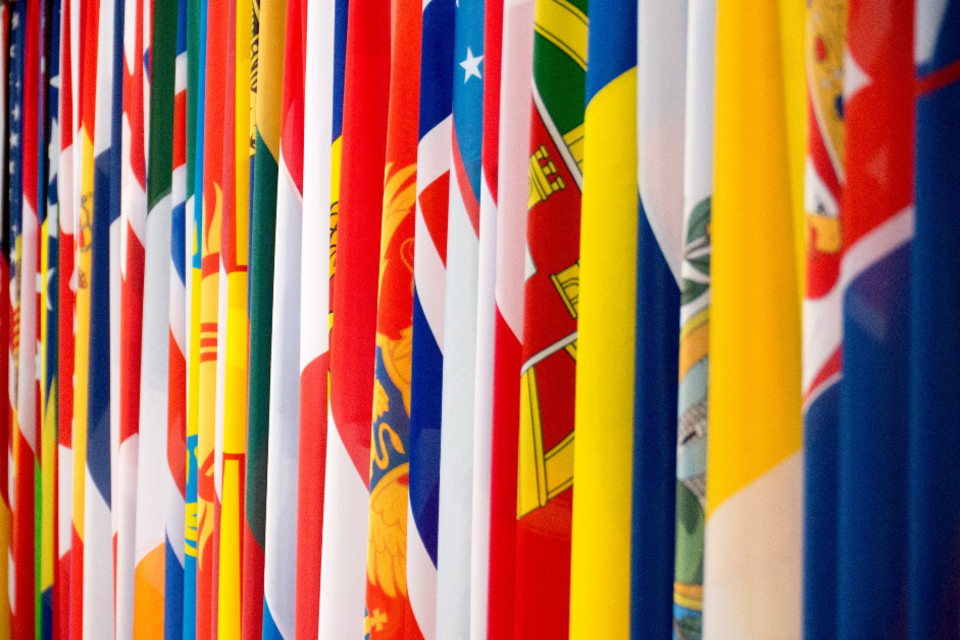International Day for the Elimination of Sexual Violence in Conflict: UK statement
Delivered by Ambassador Neil Bush at the OSCE Permanent Council on 18 June 2020.

Thank you Chair
We would firstly like to thank Ambassador Melanne Verveer for her poignant, as ever, comments on gender-based violence and on conflict-related sexual violence.
Mr Chair - on 19 June we mark the International Day for the Elimination of Sexual Violence in Conflict.
Rape and other forms of sexual violence continue to be used as weapons of war in conflicts the world over. The scale of sexual violence against civilians in situations of conflict and repression is truly appalling. Survivors of conflict-related sexual violence are often ostracised by their communities, shunned by their families, denied just justice and cut off from critical support networks. We must take action to end this, and eliminate the culture of impunity that surrounds these abhorrent crimes.
The UK has led global action to tackle conflict-related sexual violence since the launch of the Preventing Sexual Violence in Conflict Initiative (PSVI) in 2012 by the former Foreign Secretary, Lord Hague, and UNHCR Special Envoy, Angelina Jolie. Since then, the UK has committed over £46 million, supporting over 85 PSVI projects across 29 countries. We remain committed to championing restorative justice for survivors and holding perpetrators to account, to supporting all survivors and children born of conflict-related sexual violence, tackling the stigma they face, and acting to prevent conflict-related sexual violence.
The PSVI follows a survivor-centred approach, in line with UN Security Council Resolution 2467 on Sexual Violence in Conflict. We endeavour to ensure all policies and practices follow the ‘do no harm principle’ and avoid re-traumatising survivors.
To this end, we work closely with survivor networks and organisations to ensure their perspectives inform our policy and strengthen international standards for evidence gathering from survivors. The UK PSVI Survivor Champions, Nadine Tunasi and Kolbassia Haoussou, play a key role in shaping PSVI policy to ensure that survivors’ voices are included. They advocate for support for all survivors, including the provision of sexual and reproductive healthcare services, and are a vital element of our survivor-centred approach.
To mark this year’s International Day for the Elimination of Sexual Violence in Conflict, the UK will launch the draft ‘Murad Code’ for global consultations. Named after Nobel Peace Laureate Nadia Murad, this global survivor-centred code of conduct will prevent the re-traumatisation of survivors when documenting conflict-related sexual violence, and uphold international standards to strengthen investigation into sexual violence crimes. The Murad Code is a crucial element of the UK’s commitment to strengthen justice and accountability for survivors of conflict-related sexual violence. We encourage all states to consult and support the Murad Code.
In this, the twentieth anniversary of UNSCR 1325, it is important that we implement the objectives of the Resolution. The full and meaningful participation of women in peace processes is essential to more sustainable peace and security.
Finally, a few words on the impact of the global pandemic. We know that previous health crises have led to increases in the already high rates of Intimate Partner Violence in Conflict. Globally, one in three women will experience IPV in their lifetimes (according to the WHO, 2017) and in 2018 IPV accounted for 58% of female homicides (UNODC, 2018). Women living in fragile and conflict-affected states and through health crisis are at increased risk. Adolescent girls are particularly vulnerable to abuse and exploitation as a result of the economic impact of COVID-19. We are already witnessing similar trends in increased IPV following the COVID-19 lockdown restrictions.
At the same time as exacerbating violence against women, the COVID-19 response risks limiting opportunities for women to report violence, as face-to-face services are closed (often due to funding diversion) or inaccessible and so moved online. This move towards online service provision risks excluding women with limited access to technology and little privacy to contact support services.
The UK provides pre-deployment training on PSVI issues to all UK troops, as well as with partner countries, before they deploy overseas. However, the reduced capacity of peacekeeping and monitoring missions during COVID-19 limits the extent to which they can protect and respond to survivors of conflict-related sexual violence. We recognise that the need for Safeguarding is also heightened at times of crisis.
Mr Chair - preventing and eliminating conflict-related sexual violence remains a key UK priority. We will continue to galvanise international action on this issue, and to ensure that survivors and their views, needs, advice and expertise are at the heart of the international response. We will continue to strengthen justice and hold perpetrators to account for these horrific crimes, to supporting all survivors, and to tackle the root causes of conflict-related sexual violence. And, we will continue to work toward making the goal of preventing and eliminating conflict-related sexual violence a reality.